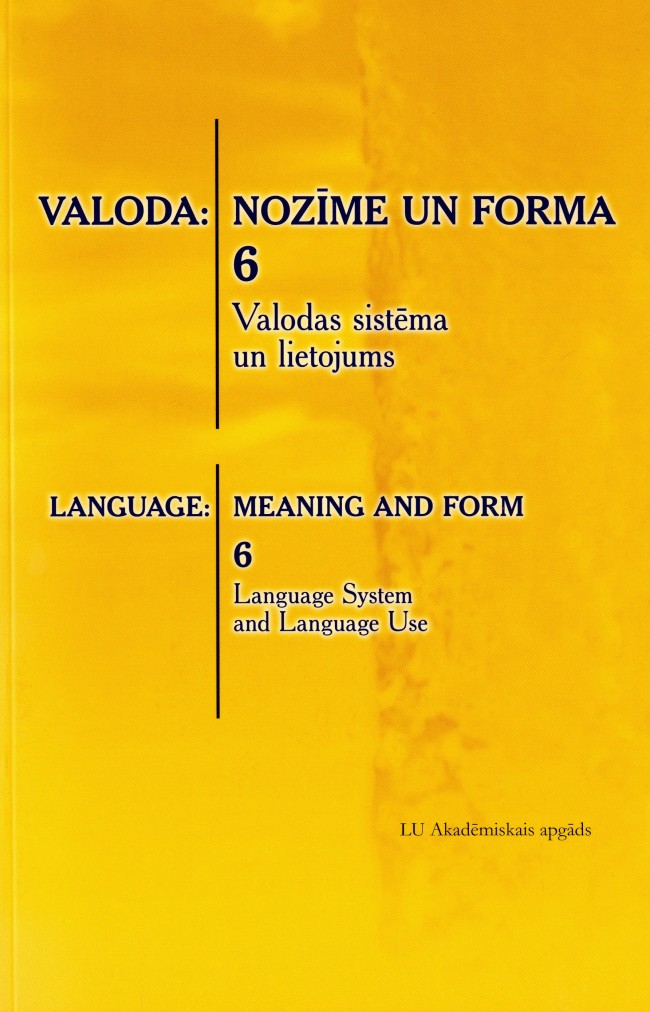Darbības vārda varēt modālā semantika un funkcijas latviešu valodā
Verb varēt ‘can’ modal semantics and functions in Latvian
Author(s): Anete DainaSubject(s): Language and Literature Studies, Semantics, Baltic Languages
Published by: Latvijas Universitātes Akadēmiskais apgāds
Keywords: modalitāte; modālais darbības vārds; modālā nozīme; gramatiskā kategorija; funkcija
Summary/Abstract: In many languages of Europe and others there are many studies in modality and modal verbs, especially in Germanic languages, while in Latvian linguistics the extent of research in this field is not so large. Because of that, the purpose of this work is to explore one of the modal verbs in Latvian – varēt ‘can’, its’ modal semantics and functions. To accomplish the purpose of the work, the author reviewed theoretical literature about modality and modal verbs in Latvian, English and other languages, and excerpted and analyzed examples of the use of modal verb varēt ‘can’, so to determine modal verb’s varēt ‘can’ morphological features and modal meanings. In the result it was found out that modal verb varēt ‘can’ in Latvian can be used in all grammatical categories of verb, with or without infinitive, and in epistemic and deontic modality, expressing such modal meanings like assumption, irony, objective necessity, suggestion, permission, instruction, encouragement, demand. Modal meanings are affected by context and verb mood.
Journal: Valoda: nozīme un forma
- Issue Year: 2015
- Issue No: 6
- Page Range: 89-102
- Page Count: 14
- Language: Latvian

